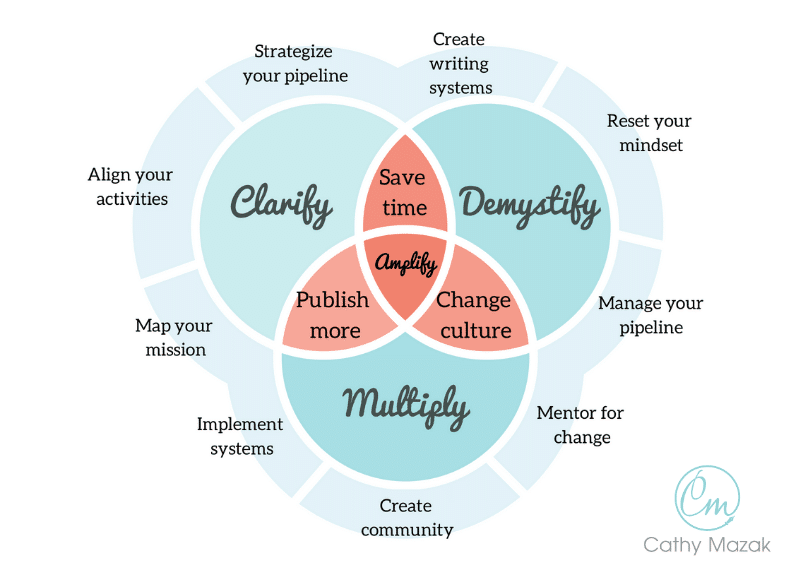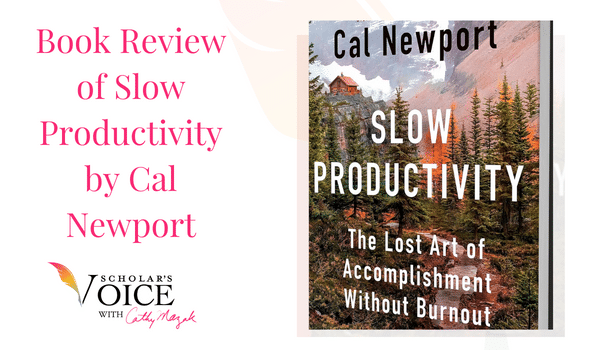How to Stop Working Weekends

Are your working hours spilling over into nights and weekends as an academic? Do you feel powerless to squeeze everything into a ‘regular’ work week? This is the episode for you.
MORE DETAILS
As an academic woman, you undoubtedly have a lot on your plate. You may feel like there is simply no way to fit all the work into a regular work week. And if you enjoy working on the weekend, by all means, do it! But if you want to reclaim your extra hours for yourself, to spend with your family, just not working, there are things you can do to make that happen. This doesn’t mean that there will magically be less work.
“There is always going to be more work in your academic career then there are hours in the day.”
So how can we reduce the hours we work if we can’t reduce the work itself? By changing the way we approach it, in two ways: through utilizing systems and processes, and by changing our mindset.
Use Systems and Processes
Academic culture is not always the best about passing on the kind of information that is helpful in managing our day-to-day lives and workloads, so if you haven’t got this part figured out, don’t blame yourself. But instead of telling yourself, “I have so much work, I need to work more hours”, focus on what you can do to fit the work into the hours you want to be working. Using repeatable, predictable systems and processes is key.
1. Use Writing Systems.
Create a system for a regular, predictable writing practice, one that is easy to pick back up if you get off track, and puts you in the chair at your most focused, energetic times. Check out episode 2 to learn how to find your ‘tiger time’ and implement it for a robust practice.
Using a writing system:
- Doesn’t have to be every day
- Creates positive feedback around your writing
- Helps you regain momentum if you fall out of rhythm
- Gives you a way to consistently place writing inside the workday
In our programs we teach you how to use a variety of tools (including writing sprints, retreats, tiger time and more) to create a writing system that works for you. To get an in-person taste of how we implement this in our programs, join us on April 9 in Philadelphia for The Write More Workshop.
2. Use Pipeline Management Processes.
You need to know exactly where all your work is in the publication process in order to make the best decisions about what is most important to work on, and to make the biggest impact with your work. Having a reliable process for managing your publication pipeline means:
- Knowing what is in the pipeline and where it is in the process
- What steps need to be taken to move things along
- Which projects should be worked on when
- Making better decisions about where to invest your time for maximum impact
In our Amplify program framework, we work through 3 main areas with you. Last week on the podcast, we talked about Clarity. The steps we’re going through this week are covered under the Demystify part of the framework.
- We teach you how to implement systems and change your mindset to write and publish more so you can go up for tenure with confidence.
- The natural side effect of this work is to corral your work into a 40 hour work week.

Change Your Mindset
What you believe about the work that you do is the most important aspect of this whole process. How you view your work, your time, your mission and yourself as an academic woman forms the basis for your entire career. I can’t stress enough how important mindset is! Here are two ways to use mindset to transform how you are using your time.
1. Create Boundaries.
You are the person in charge of whether you work weekends. If you want to change this habit, you must create boundaries around your time, and what you are doing. This means you will have to:
- Say no sometimes
- Understand what you are not willing to take on
- Decide which things get your highest levels of excellence and which simply get checked off
- Draw a line in the sand (ex: I will not check email after 5pm on Fridays. Period.)
I suggest doing a time audit. Disclaimer: they are no fun! Take a week and write down everything you do, and how long it takes you. Where are you putting your best hours? How many hours do you spend grading? Writing? On email? In the lab? What can you tighten to spend less time doing things that are not essential? What system, process or boundary can you implement to reduce unuseful hours?
2. Examine Your Beliefs.
Take some time to really examine what you believe about what it means to be a “good academic”. Deep down are you carrying around beliefs that a “good academic:
- Works nights and weekends
- Is always busy and stressed
- Must say yes to demands made on her by others
- Is powerless over her time
Because none of these are true! In order for you to be the best academic you can be, you need to have a rested, revitalized brain, and you need to be a healthy, cared for whole person.
“If you don’t rest, you won’t bring your best self to the work; and the world needs your best self doing the work!”
If you are interested in working with me and my team to demystify time savings in academia through mindset shifts, and using systems and processes, consider checking out my programs.
The Write More Workshop: April 9 in Philadelphia.
Amplify Faculty Writing Accelerator: Enrolling now
Academic Woman’s Writing Roadmap course: Enrolling in May
And join us in the
Connect with me:
RELATED PODCASTS
Stay current in Academic Publishing
Subscribe to our newsletter:
In the Pipeline
writing tips, publishing trends, reading recomendations, free workshops





